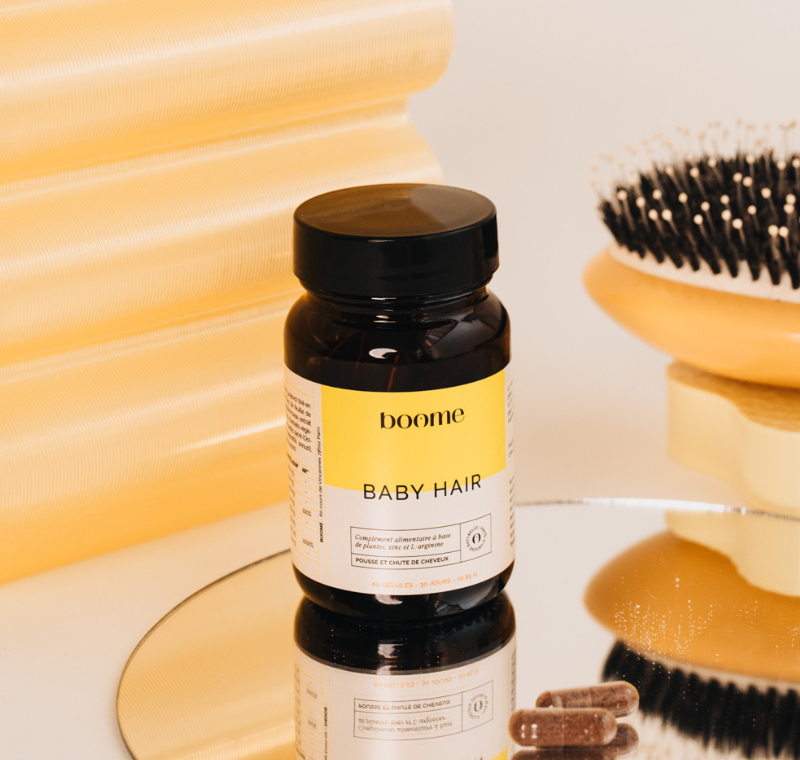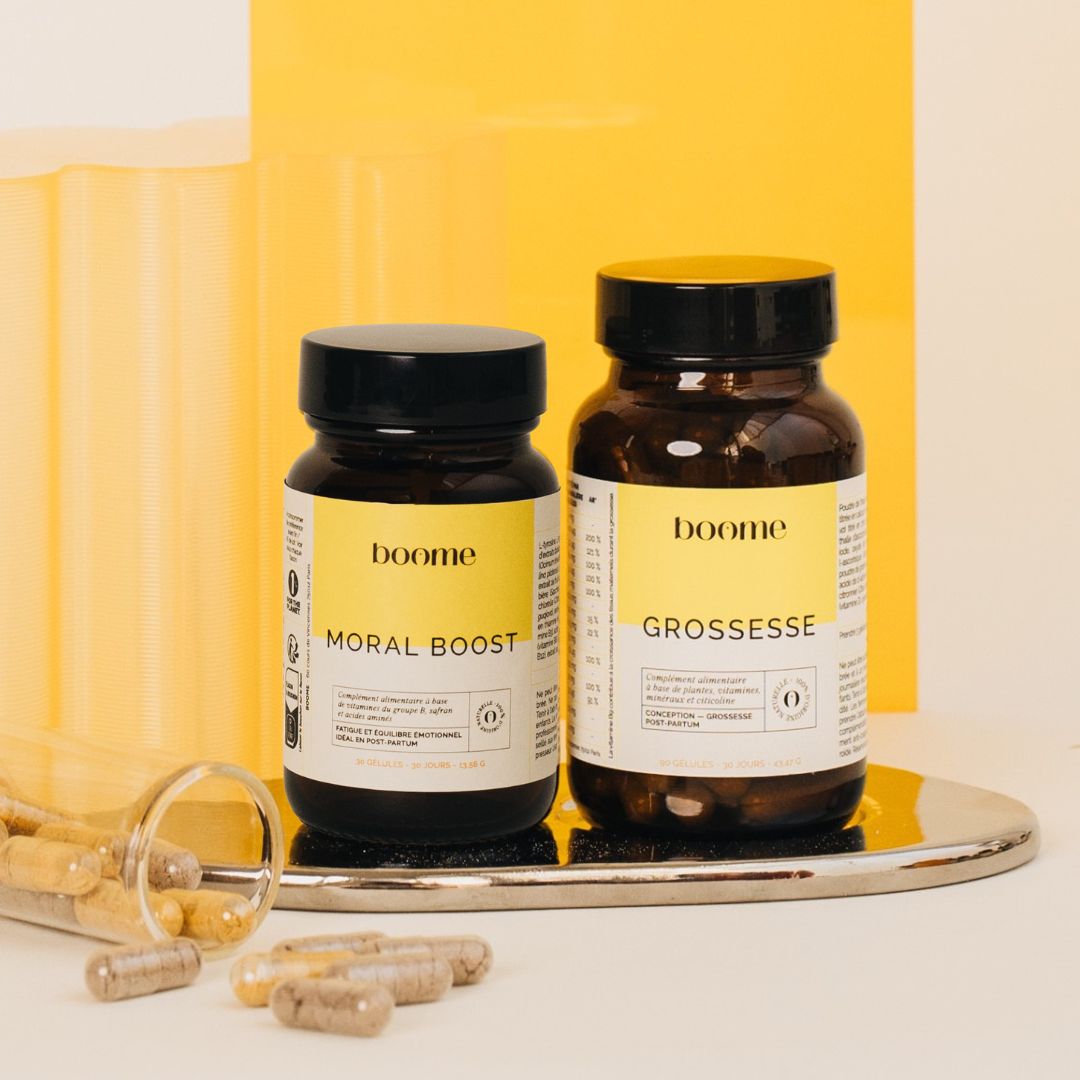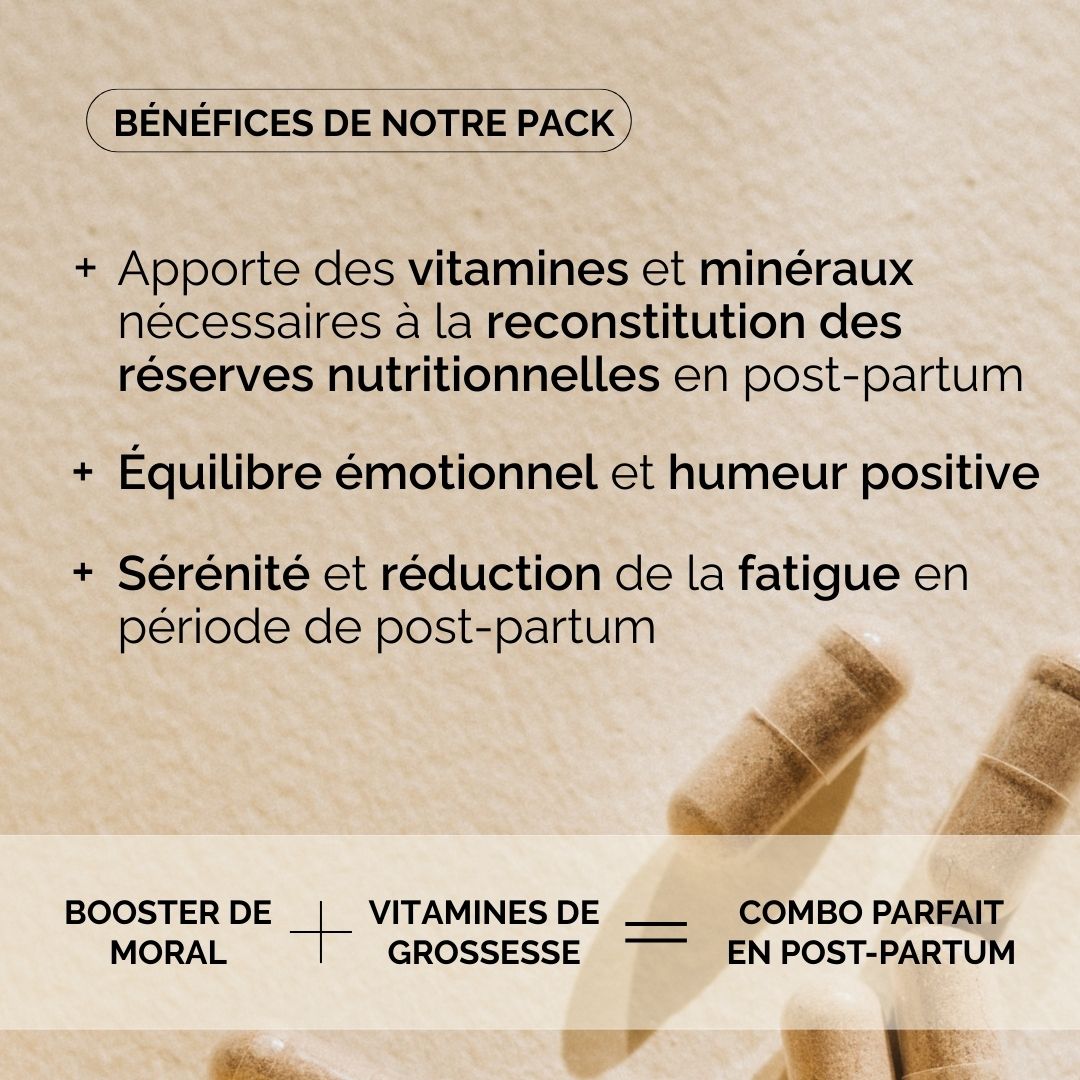
You've just experienced one of the most incredible moments of your life: the birth of your baby. As you adjust to this new reality, one question may be on your mind... When will your period return? Menstrual flow, or the resumption of menstrual cycles after giving birth, is an important but often overlooked topic. Whether you're breastfeeding or not, understanding menstrual flow will help you better understand the changes in your body postpartum. In this article, we'll explain in detail what menstrual flow is, how it's affected by breastfeeding, and answer some of the most frequently asked questions. Grab a coffee, settle in, and let's go!
What is the return of menstruation?
The return of menstruation refers to the arrival of the first menstrual period after childbirth. At the time, the term "menstruation" referred to childbirth and the period following it. "Return of menstruation" literally means the return of a regular menstrual cycle after the birth of your child.
Be careful not to confuse it with lochia, the blood loss that occurs in the first few days after your baby's birth. Lochia, which comes from the placental wound (where the placenta was implanted in the uterus), lasts about two weeks and becomes less and less abundant. Its appearance changes over the days: first red and bloody, it becomes pinkish, then brownish.
Once the lochia period ends, a new phase of bleeding begins. Caused by the drop in hormones, this is called "return of menstruation," and can last approximately one month.
Finally, several weeks after giving birth and after the end of lochia, the body returns to its normal hormonal levels. It begins to secrete estrogen and progesterone again. This hormonal return triggers the reappearance of menstrual cycles… And this is what we call the return of menstruation!
Be aware that these first periods after childbirth are often heavier and longer than your usual period. Don't panic: their volume gradually decreases over the course of your cycles.
When do periods return when breastfeeding?
At a young breastfeeding mother's house
New mothers who breastfeed can experience a significant delay in their menstrual cycle. And breastfeeding plays a big role in this! In this case, the body produces high levels of prolactin, a hormone that inhibits ovulation. So, most of the time, as long as breastfeeding is exclusive and frequent, periods may not return for several months.
Some mothers may even experience this absence of periods for the entire duration of exclusive breastfeeding. Generally, this lasts until diversification or the transition to mixed feeding, with the introduction of bottles of milk. But of course, let's not forget that this timeframe varies enormously from one woman to another.
So, even with full breastfeeding, some mothers may experience an early return of menstruation. While for others, it may take longer. However, it is generally found that once breastfeeding is completed, periods return after six to eight weeks.
Are you planning to breastfeed your baby? Discover the sound advice from the French Health Insurance to make breastfeeding easier .
In a new mother who is not breastfeeding
For a new mother who isn't breastfeeding, menstruation often returns sooner. Without prolactin's ovulation-inhibiting effect, the body returns to its normal menstrual cycles sooner. On average, the first period appears between six and eight weeks after giving birth.
However (and as usual), this timeframe can vary depending on many different factors: the mother's health, her postpartum hormonal balance, etc. However, as with breastfeeding mothers, the first menstrual periods can be heavier and last longer than normal. But this will normalize over time.
In any case, doctors recommend avoiding tampons during the first cycles to minimize the risk of infection, especially if you have had an episiotomy.
Return of periods and breastfeeding: frequently asked questions
Does breastfeeding delay the return of menstruation?
Yes, breastfeeding can delay the return of menstruation. This is due to prolactin, the hormone responsible for breast milk production, as it inhibits ovulation. So, as long as you are fully breastfeeding, your body maintains high levels of prolactin. This can delay the resumption of your menstrual cycle . Every woman experiences this differently: it can last a few months, or more than a year.
This delayed return of menstruation is often used as a natural method of contraception called "LAM" (breastfeeding and amenorrhea). This method can be more or less effective during the first six months after giving birth. However, if you don't want to risk becoming pregnant again... We advise you to take precautions during sexual intercourse, because the absence of a period is not always the same as the absence of ovulation!
Is it possible to have periods while breastfeeding?
Yes, it is possible to have a return of menstruation while breastfeeding. While exclusive breastfeeding can delay the return of menstruation, some breastfeeding women will still experience a return of their periods. It depends on:
- of each person's sensitivity to hormones;
- the number of feedings per day.
For example, if the baby begins to space out breastfeeding sessions, or to sleep longer at night, this can reduce prolactin levels and allow the menstrual cycle to resume.
Can you continue breastfeeding after your period returns?
Of course! Breastfeeding and menstruation are perfectly compatible, and you can continue breastfeeding even after your period returns. This doesn't affect the quality of your breast milk at all. Some mothers notice that their baby is a little more fussy during feedings a few days before their period. This is due to hormonal changes that can slightly alter the taste of the milk.
However, these effects are temporary, and you don't need to stop breastfeeding. Quite the opposite: you're encouraged to continue breastfeeding as much as you and your baby want, even after your period returns.
Pssst… If you're looking for a little boost to feel your best after giving birth, our postpartum products should be just what you need!
Does the return of menstruation decrease lactation?
The return of menstruation can sometimes cause a slight temporary decrease in milk supply. This is due to hormonal fluctuations that can affect milk production during the menstrual cycle, especially right before and during your period. For example, you might notice that your breasts are less full or that your baby seems to want to nurse more often. But don't worry: this decrease doesn't last, and milk production returns to normal after a few days.
The best things to do to maintain good lactation:
- hydrate well;
- continue to breastfeed frequently;
- and enjoy doing it.
However, if you have any concerns, don't hesitate to seek advice from a lactation consultant, your midwife, or your doctor.
Remember, the return of menstruation is a natural process that varies from woman to woman and can be influenced by breastfeeding. While it can cause temporary changes in lactation and the menstrual cycle, it usually has no negative impact on breastfeeding.










